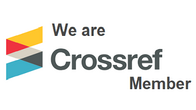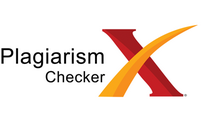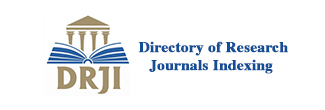SIKAP DIGITAL NATIVES TERHADAP INFORMASI HOAX DI FACEBOOK MENJELANG PILPRES 2019
Abstract
and functions, which make it easier for humans to meet their needs. The presence of the internet
has brought revolution and innovation in the way humans communicate and obtain information.
The internet has succeeded in overcoming classic human problems, because the limitations of
distance, space and time are no longer a significant obstacle. Social networks have a positive
impact on community communication. But behind it all there are also negative impacts that are
felt by many users of social media. The negative impact is caused because the community is not
good at choosing and sorting out the good ones and the bad ones. This study aims to find out
the attitude of Digital Natives about how the news is especially related to politics on Facebook
ahead of the 2019 Presidential Election. This study uses qualitative methods that seek to dig
deep information, and be open to all responses and answers. The conclusion of this research is
that all informants agreed to keep checking a news / information that they found on Facebook
to be more convincing and know the truth of the news they saw. Given the current many news
hoaxes that make people dibelief in the news / information on social media.
Keywords
Full Text:
##Full Text##References
Ardianto, Komala, dkk. (2014). Komunikasi Massa: Suatu Pengantar Edisi Revisi. Bandung. Simbiosa Rekatama Media.
Baran, Stanley J. (2012). Pengantar Komunikasi Massa: Melek Media dan Budaya Jilid 1 Edisi 5. Jakarta: Erlangga.
Bungin, Burhan. (2014). Sosiologi Komunikasi: Teori, Paradigma dan Diskursus Teknologi Komunikasi di Masyarakat. Jakarta: Kencana Prenada Media Group.
Cangara, Hafied. (2011). Pengantar Ilmu Komunikasi. Jakarta: PT. Abed Grafindo Persada.
Effendy, Onong Uchjana. (2005). Dinamika Komunikasi. Bandung: PT. Remaja Rosdakarya.
Hamidi. (2005). Metode Penelitian Kualitatif: Aplikasi Praktis Pembuatan Proposal Dan Laporan Penelitian. Malang: UMM PRESS.
Iriantara, Yosal. (2009). Literasi Media: Apa, Mengapa, Bagaimana. Bandung: Simbiosa Rekatama Media.
Juju, dan Feri Sulianta. (2010). Branding Promotion With Social Network. Jakarta: PT. Elex Media Komputindo.
Mc.Quail, Dennis. (2011). Teori Komunikasi Massa Jilid 1 Edisi 6. Jakarta: Salemba Humanika.
Moleong, Lexy. (2007). Metode Penelitian Kualitatif. Bandung: Remaja Rosda Karya.
Mulyana, Deddy. (2005). Ilmu Komunikasi: Suatu Pengantar. Bandung: PT. Remaja
Rosdakarya.
. (2011). Media dan Perubahan Sosial. Bandung: PT. Remaja Rosdakarya.
Nasrullah, Rulli. (2015). Media Sosial : Prosedur, Tren dan Etika. Bandung: Simbiosa Rekatama Media.
Rahadi, D.R. (2017). Perilaku Pengguna Dan Informasi Hoax Di Media Sosial. Jurnal Manajemen dan Kewirausahaan, Vol. 05 No. 01. Situs: http://jurnal.unmer.ac.id/index.php/jmdk/article/download/1342/933.
Sugiyono. (2012). Memahami Penelitian Kualitatif. Bandung: ALFABET.
Taprial ,V. & Kanwar, P. (2012). Understanding Social Media. United States: Ventus Publishing.
Tamburaka, Apriadi. (2013). Literasi Media: Cerdas Bermedia Khalayak Media Massa. Jakarta: Abedwali Pers.
DOI: https://doi.org/10.31002/jkkm.v3i2.1991
Refbacks
- There are currently no refbacks.
Copyright (c) 2019 Jurnal Komunikasi dan Kajian Media

This work is licensed under a Creative Commons Attribution-NonCommercial 4.0 International License.

This work is licensed under a Creative Commons Attribution-NonCommercial 4.0 International License. View My Stats

.jpg)






1.png)


.png)
